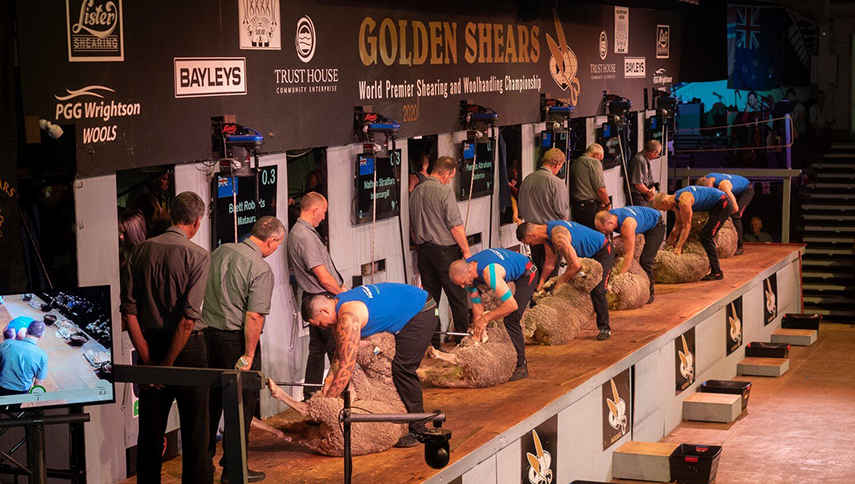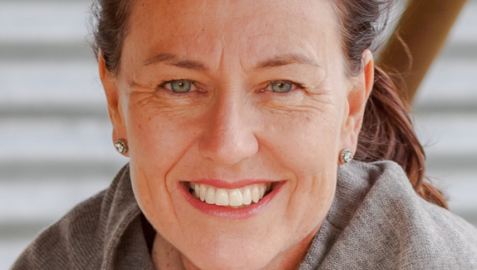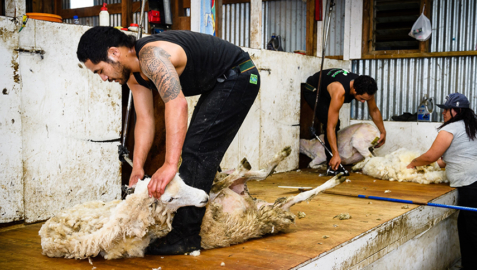
Dealing with disappointment
Module Overview
The cancellation of iconic events like Golden Shears and the Southland A&P Show due to Covid alert level changes highlights the need for rural communities to stick together and have a plan B.
The 61st Golden Shears, which were scheduled to be held in Masterton this week, have been cancelled for the first time in their history. A huge disappointment, not just for the 300 plus competitors, but also for the many rural families who look forward to the event each year.
“It was a huge thing,” says Mark Barrowcliffe, President of the NZ Shearing Contractors Association. He was a judge at last year’s competition and intended to compete at this one.
Our shearing community was only just getting used to being able to catch up again with each other after so many shearing sports events were cancelled last year. So it was a huge disappointment to have the goalposts pulled up again.”
“I know a lot of planning and extra measures had gone into this year’s event too. But looking back, I guess we were very lucky to be able to celebrate the 60th anniversary of Golden Shears last year before we went into lockdown.”
Events like Golden Shears hold a special place in the hearts of those involved in wool harvesting, he says. “What a lot of people may not appreciate is that shearing’s not just a job, it’s also a sport. Many shearers are honing their skills at work for five to seven days a week, just so they can compete at events like these. They work hard for months to prepare for show season, even down to making sure the comb on their hand piece is the perfect thickness. So having the rug pulled at the last minute is a real let down.”
Make the best of a crappy situation
We sought some expert advice on how to cope with such disappointment. Sarah Donaldson of Tea Health and Wellbeing is a clinical psychologist based in the Wairarapa and works extensively with rural families for the Rural Support Trust and Farmstrong. “First,” she says, “let’s not minimise how people may be feeling – a cancellation like this is hugely gutting for people competing for elite level, national titles. It obviously require a huge amount of mental and physical preparation. It would be abnormal if you didn’t feel gutted. So it’s important to let yourself have that emotion.”
“But it’s also true that going through that kind of gut-wrenching disappointment sometimes allows you to appreciate just how much meaning an event like that has for you. It reinforces how important it is for you in your life.” The key, she says, is ‘not to let the disappointment sit with you for too long.’
“We don’t want that disappointment to consume a person so they lose track of where to next and lose motivation. It’s ok to feel flat for a bit, but it’s also important to contain it and realise something like the cancellation of Golden Shears is completely out of your control. It’s nothing personal, everyone is in the same boat. You can’t change it. All you can do is work out how to reset and look at other goals.”
“For example, these competitors clearly have a lot of passion and drive. So it’s about asking, where else can I put my energy to good use in other activities that are still happening and are meaningful to me? It’s a bit like the All Blacks last year when they couldn’t do the international games and super 15 but they still put a lot back into the community. It’s about looking for local opportunities to fill the void.”
“That might be stuff that’s happening outside the woolshed. What else right now is going to give you some joy? If it can’t be elite shearing, could it be hunting or fishing or another sport or helping to organise a community event? It’s about making the best of a crappy situation.”
“Even making a plan and deciding what your next steps are will give you a sense of accomplishment if you’re feeling ho-hum. Disappointment is natural, but don’t let it fester, take steps to move on.”
Look out for each other
Mark Barrowciffe offers similar advice. “Obviously in uncertain times like these it’s about keeping it simple. So instead of waiting for that big event, get along and support some of the smaller things that are happening in your own town. Go to the little show or event down the road. Make the most of what you’ve still got.”
He believes rural communities will need to be resourceful in organising and running events in the era of Covid. “Last year, for example, our Canterbury Shears event ran on a much smaller scale in someone’s woolshed. But that meant it could still go ahead. So it’s about being flexible too, taking into account the need to stick to the Alert Level guidelines.”
Mark says keeping up morale during a global pandemic is also about more than events. “As a shearing crew, we’re celebrating the little things that matter a lot more than we used to. For example, instead of going hard and jamming three day’s work into one, we’ve decided as a crew to do the work over the three days so it’s more relaxed, more communal and there’s more time for a yarn. In times like these, it’s not just about the work, it’s about looking after each other too.”
“These are tough times for the wool industry anyway with the value of the product. That does have an effect on people, the crews and the farmers. It’s important to talk about these things and support one another.”
“You can’t do that when you’re constantly under the pump. It’s about taking time to check how people are doing. If people aren’t used to these conversations, they might find it a bit awkward at first, but usually after ten minutes, they’re away,” he notes.
“It’s also important to remember the positive things are happening. For example, there’s a new training initiative for wool harvesting called Kaiaka run by trainers Womolife which is just getting underway. Up to 270 people will be trained, and 150 new shearing and wool handling jobs created which will help revitalise our industry. So that’s something I’m looking forward to. And hopefully the NZ Shears will still go ahead in Te Kuiti in early April. So it’s not all doom and gloom.”
Farmstrong is an award-winning rural wellbeing programme that helps farmers and farming families live well to farm well. To find out what works for you and ‘lock it in’, check out our farmer-to-farmer videos, stories and tips on www.farmstrong.co.nz


